Irving Berlin: Songs about the South, 1911-1924
_______________________________________________
 This is not a complete collection of all songs by Irving Berlin which reference the South. While more songs may be added, I’ll continue to exclude those in which Dixie, the South, or a Southern city are mentioned but the location is not a focus of the lyric. Those included often invoke the excitement of a person who is about to return home to the South (or Dixie) as he or she variously describes certain appealing Southern customs, rhapsodizes generally about the South or a part of it, or recalls the charms of a particular southern belle. In other songs, the singer-narrator provides a first-person sketch in which he imagines or recalls treasured features of the region: the physical beauty of the land, the warmth of its people, fondly-remembered customs and habits, etc.
This is not a complete collection of all songs by Irving Berlin which reference the South. While more songs may be added, I’ll continue to exclude those in which Dixie, the South, or a Southern city are mentioned but the location is not a focus of the lyric. Those included often invoke the excitement of a person who is about to return home to the South (or Dixie) as he or she variously describes certain appealing Southern customs, rhapsodizes generally about the South or a part of it, or recalls the charms of a particular southern belle. In other songs, the singer-narrator provides a first-person sketch in which he imagines or recalls treasured features of the region: the physical beauty of the land, the warmth of its people, fondly-remembered customs and habits, etc.
Individually and as a group, Southerners are described or portrayed as warm, engaging, generous, and rich in hospitality. While Berlin may have been drawing on personal experience to create these portrayals, to a large extent he seems to have been following conventions, supplying the sunny, wholesome pictures of the South that the public wanted and expected to hear.
Selected songs about Florida by Berlin are omitted from this page, and featured in another Songbook page:
See also the index to Songbook’s Irving Berlin pages:
____________________________________
Words and music by Irving Berlin for all songs, except as noted
1911
Virginia Lou (m. Earl Taylor, w. Irving Berlin) — Copyrighted on 20 March 1911
[1st verse:]
I’m writing her a letter
To Virginia where I met her
And believe me I’ll feel better
When she knows I’m coming home
My heart will cease it’s aching
If God grants tomorrow’s waking
A train I will be taking to my own
Let me hear a Southern tune
For I’m going back to Virginia soon
[Refrain:]
Virginia Lou
I’m coming home to you
Because I’m lonesome and blue
All through and through
Southern jokes and Southern folks
Are good enough for me too
If they’re for you
If I remain
I’ll go insane
I’m waiting now to bless the train
That carries me back to old Virginia
Lou, Lou
I’m coming home to you
Virginia Lou
[2nd verse:]
If Southern blood flows in yer
Take a map of old Virginia
Look ‘er over and then kin yer
Help but say that none compare
The map is bound to find yer
Weeping tears of joy that blind yer
If you left one behind yer, waiting there
Pretty gals there’s quite a few
But there’s only one Virginia Lou
________________________
1912
- Apollo
- Henry Lewis
- Harry H. Young
When the Midnight Choo Choo Leaves For Alabam’ — copyright, 2 November 1912
Victor Military Band — recorded on 27 January 1913 in Camden, New Jersey; issued in April 1913 on the 12-inch 78 rpm single Victor 35277, c/w “Waiting for the Robert E. Lee”
.
G. H. Elliot — recorded in London, 19 April 1913, and issued on the British Zonophone-The Twin label
.
Collins & Harlan — Edison Blue Amberol 1719, released in 1913
.
Harry Long — issued in 1913 on the 10-inch 78 RPM shellac single (UK) Phoenix O141
.
Tommy Dorsey and his Clambake Seven , vocal: Edythe Wright — recorded on 10 March 1938 in New York, New York; released on 13 April 1938 on the single Victor 25821, b/w “Everybody’s Doing It”
.
The Andrews Sisters with Vic Schoen and his Orchestra — recorded in Los Angeles on 12 March 1947; originally issued on the 78 rpm single Decca 24425, c/w “Heat Wave”
.
Fred Astaire and Judy Garland — from the musical film Easter Parade (1948)
.
I’ve had a mighty busy day
I’ve had to pack my things away
Now I’m going to give the landlord back his key
The very key
That opened up my dreary flat
Where many weary nights I sat
Thinking of the folks down home who think of me
You can bet you’ll find me singing happily
[chorus:]
When the midnight choo-choo leaves for Alabam’
I’ll be right there
I’ve got my fare
When I see that rusty-haired conductor-man
I’ll grab him by the collar
And I’ll holler
“Alabam’! Alabam’!”
That’s where you stop your train
That brings me back again
Down home where I’ll remain
Where my honey lamb
Am
I will be right there with bells
When that old conductor yells
“All aboard! All aboard!
All aboard for Alabam'”
[2nd verse:]
The minute that I reach the place
I’m goin’ to overfeed my face
‘Cause I haven’t had a good meal since the day
I went away
I’m goin’ to kiss my Pa and Ma
A dozen times for ev’ry star
Shining over Alabama’s new mown hay
I’ll be glad enough to throw myself away
___________________________________
I Want to Be in Dixie (m. Ted Snyder, w. Irving Berlin) — Copyrighted on 14 January 1912
According to The Complete Lyrics of Irving Berlin, edited by Robert Kimball and Linda Emmet (2001), p. 47, the song was first published under the title “I’m Going Back to Dixie” and introduced by May Irwin in She Knows Better Now, which opened January 15, 1912 at the Plymouth Theatre, Chicago. The show closed out of town. Complete Lyrics indicates that a major recording of “I’m Going Back to Dixie” was that by Arthur Collins and Byron Harlan, and that
Under the title “I Want to Be in Dixie,” the song was sung at the Winter Garden, New York, by the Courtenay Sisters in A Night with the Pierrots, the curtain raiser for Whirl of Society.
“I’m Going Back to Dixie” recordings
Arthur Collins and Byron Harlan (aka “Collins and Harlan”) — recorded on 4 December 1911 (Columbia matrix 19679); issued in 1912 on the 78 rpm single Columbia A-1112, as the B-side of “‘Lizabeth Ann (A Southern Love Song)”; A-side recorded by Henry Burr and Albert Campbell (aka “Campbell and Burr”) — It’s not clear to me why the recording date precedes the song’s copyright date by over a month.
.
.
Mayfair Orchestra — issued in 1912 on (UK) His Master’s Voice C-213
.
“I Want to Be in Dixie” recordings
Jen Latona with orchestral accompaniment — recorded c.1912(?), and issued on Zonophone 961, c/w “Gee, but I like music with my meals”
.
The American Ragtime Octette — date unknown, probably c.1912
.
Geraldo and his Orchestra, vocals: Dorothy Carless & Chorus — issued December 1943 on the 78 rpm single (UK) Parlophone F.1998, as the B-side of “Ragtime Cowboy”
.
Johnny Maddox, piano solo — 31 July 2010
The video provider says:
Johnny Maddox plays two songs about Dixie, Irving Berlin’s “I Want to Be in Dixie” from 1912, and “At the Mississippi Cabaret” from 1914. Recorded in the Diamond Belle Saloon at the Strater Hotel in Durango, Colorado – July 31, 2010.
.
The second sheet music cover below has an inset photo of a performer named Edward Boyd.
[1st verse:]
I’m very glad
I’m very glad
Because a train I’m takin’
To that ne’er forgotten or forsaken
Sunny land of cotton, down to the town I was born
I’m glad I had
I’m glad I had
Enough to buy a ticket
Now I hope that there will be no pause
Let me tell you the reason is because:
[chorus:]
I want to be
I want to be
I want to be down home in Dixie
Where the hens are doggone glad to lay
Scrambled eggs in the new mown hay
You ought to see
You ought to see
You ought to see my home in Dixie
You can tell the world I’m going to
D-I-X-I don’t know how to spell it
But I’m goin’
You bet I’m goin’
To my home in Dixieland
[2nd verse:]
Conductor man
Conductor man
I’m kind o’ hard of hearin’
So just fix it when the train is nearin’
Dear old Dixie, better shout, holler out, good and loud
Conductor man
Conductor man
I’m goin’ to fall asleep now
Tell the motorman to start the train
Let me tell you when I wake up again:
______________________________
1913
Down in Chattanooga
Copyrighted on 21 November 1913; introduced by Belle Baker; major recording by Arthur Collins and Byron Harlan
- Midi file, from ParlorSongs.com: Down In Chattanooga
 Goodbye, I’m leaving town
Goodbye, I’m leaving town
I’ve sent my luggage down
To the railway station
I’ve had my vacation
Before I go away
This much I want to say:
I would like to have you call on me someday
[chorus:]
When you’re down in Tennessee
Stop at Chattanooga
Stop at Chattanooga
Don’t forget to call on me
Down in Chattanooga
Down in Chattanooga
Accept my invitation
You can make yourself at home
I’ll meet you at the station
With a “Giddyap, Giddyap, Napoleon”
You’ll find hospitality
Down in Chattanooga
Down in Chattanooga
You’re just as welcome as you can be
You’ll find a menu, a menu
With a lot of things to eat upon it when you
Come to Chattanooga
Chattanooga, Tennessee
[2nd verse:]
What’s mine you’ll find is yours
My folks keep “Open Doors”
Anyone who will come
Is entirely welcome
And you’ll be glad to stay
Where healthy chickens lay
Sixty cents-a-dozen eggs the livelong day
__________________________________
1914
When It’s Nighttime in Dixieland — copyright, 5 December 1914
 According to The Complete Lyrics of Irving Berlin, p.120, the song was introduced by Elizabeth Murray during the “pre-Broadway tryout” of the musical Watch Your Step. While early sheet music covers (see above and right) give the title as “When It’s Night Time Down in Dixieland,” Complete Lyrics indicates that the title was copyrighted as “When It’s Nighttime in Dixieland.” According to Complete Lyrics, the word “down” appears a couple of times in the lyric (p.120 and 121), but not in the title phrase, and “Nighttime” appears both in the title and the lyric as a one-word compound noun rather than two words.
According to The Complete Lyrics of Irving Berlin, p.120, the song was introduced by Elizabeth Murray during the “pre-Broadway tryout” of the musical Watch Your Step. While early sheet music covers (see above and right) give the title as “When It’s Night Time Down in Dixieland,” Complete Lyrics indicates that the title was copyrighted as “When It’s Nighttime in Dixieland.” According to Complete Lyrics, the word “down” appears a couple of times in the lyric (p.120 and 121), but not in the title phrase, and “Nighttime” appears both in the title and the lyric as a one-word compound noun rather than two words.
The inset photo of a woman on the sheet music cover above is identified as Ray Sammels, who may have recorded the song, though I’ve yet to find any other evidence that she did so. Ray Sammels is credited as performer (piano and voice) of another Berlin song of 1914, “He’s a Rag Picker.”
The Milne Special Collections at UNH credits a “Ray Samuels” on at least two World War I era songs. A “Ray Samuels” also performed in the Ziegfeld Follies of 1912. It’s possible that “Ray Sammels” and “Ray Samuels” refer to the same person, with misspelling in one case being responsible for the difference.
____________
Gotcha! barbershop quartet a cappella group — video published in October 2006 — Singers.com has a page on the group.
.
Masterpiece — SoCal West contest, March 2008
.
The Channel City Chorus of Santa Barbara, California at the Lobero Theatre
.
In the lyric of “When It’s Nighttime in Dixieland,” Berlin used terms and phrases to refer to African-Americans that would certainly offend today, including “darkies,” “the happiest of races,” and one much worse than these. I have presented the lyric as written, but intend no disrespect in doing so. The quartets and the choral group in the videos above necessarily use modified versions of the lyric that eliminate such words and phrases.
[1st verse:]
Talk about your Arabian nights
I must admit they’re grand
But if you long for wonderful sights
Come down to Dixieland
That’s the dearest place of all
Listening to the crickets call
When the evening shadows fall
Down in Dixieland
[Refrain:]
Night time down in Dixieland
Darkies strolling hand in hand
Southern melodies
Floating on the breeze
Let me tell you it’s grand
For when you hear those darkies harmonize
Tears of gladness fill your eyes
Baritones and basses
Lounging round the places
Dixieland embraces the happiest of races
All you see is smiling faces
When it’s night time in Dixieland
[2nd verse:]
Through the air float the wonderful tunes
Of Mister Whippoorwill
On the ground dance the bow-legged coons
They simply can’t keep still
Vet’rans of the civil war
Telling stories by the score
How they fought in sixty-four
Down in Dixieland
_____________________________
1915
 When You’re Down in Louisville Call on Me
When You’re Down in Louisville Call on Me
Copyrighted on 19 November 1915; leading recording by vaudeville singer Anna Chandler
[1st verse:]
Goodbye, ev’rybody, I’m on my way to Louisville
I feel, oh, so happy I hardly can keep still
Although my home is very small, I invite you all
If you will come, you’ll be welcome any time you call
[Refrain:]
Don’t forget Don’t forget
When you’re down in Louisville Louisville, Louisville
Just call around, I’ll be found in the town directory
I’ll have the table set
No fancy dishes
But the things you get
Will all be delicious
And you’re just as welcome as can be
When you get there, take a Jitney bus
Call on us
I’ll have you see the family
If you’re ever so lucky to be down in Kentucky
Don’t forget to stop at Louie, Louie, Louisville
And call on me
[2nd verse:]
Listen, ev’rybody, we’ve got the fairest women there
Lovely dispositions and locks of golden hair
They’ve got complexions like the rose, ev’rybody knows
Nature made them, we parade them dressed in simple clothes
__________________________________
1916
I’ve Gotta Go Back to Texas — copyright, 17 January 1916
According to The Complete Lyrics, p. 117:
It was added to the show Watch Your Step (1914) during the post Broadway tour, where it was introduced by Bernard Granville.
Charles King and Elizabeth Brice — 1916
.
[1st verse:]
Far away out west in Texas
By the Rio Grande
There’s a ranch of many acres on the prairie land
And I want you to be knowing
That’s exactly where I’m going
In just a day or so
You’ll see a satchel in my hand
[Refrain:]
I got-a go back, I got-a go back
I got-a go back to dear old Texas
To the ranch I left behind
And the girl who’s on my mind
I couldn’t remain, I’m taking a train
The Southern Pacific bound for Texas
I’m simply aching to skeedaddle
Upon a horse without a saddle
And ev’ry letter that I get from Texas
Is covered with a lot of Xes
I got-a go back, I got-a go back
To the girl I left behind
[2nd verse:]
Where the western sun is blazing
By the Rio Grande
I can see the cattle grazing on the prairie land
And it fills me with a yearning
That I ought to be returning
If you were ever there
I’m pretty sure you’d understand
______________________________
1917
There Are Two Eyes in Dixie — copyright, 5 May 1917
The lyric is found in The Complete Lyrics of Irving Berlin, on p. 154.
Carl McCullough — recorded on 9 March 1917; issued in 1917 on the 78 rpm single Columbia A2243, b/w “Mister Butterfly” (B-side recording by Henry Burr)
audio file, VBR MP3 (4.0 MB), from the page There Are Two Eyes in Dixie, at archive.org:
.
 [1st verse:]
[1st verse:]
When I left the old folks
Down in Dixieland
From that very moment
I could understand
Why they put two I’s in Dixie
When they spell that word
Here’s the simple reason
It’s the best you’ve ever heard
[Refrain:]
There are two I’s in Dixie
D-I-X-I-E
Two eyes in Dixie
Always watching me
And while I’m straying
By day and night
They keep on saying
“Turn to the right”
Makes no diff’rence where I wander
Or where I happen to be
I simply can’t go wrong
Because the whole day long
There are two eyes in Dixie watching me
[2nd verse:]
Ev’ry night you’ll find me
With a pen in hand
Writing them a letter
Down in Dixieland
I can see two eyes in Dixie
Reading what I write
And I ask their blessing
When I say my pray’rs each night
____________________
There’s Something Nice About the South — copyright, 2 April 1917
In The Complete Lyrics of Irving Berlin, you’ll find a brief paragraph on the song on p. 153 and the lyric on p. 154.
Van and Schenck – recorded on 1 March 1917 in Camden, NJ; issued in 1917 on the 78 rpm single Victor 18269, b/w “Far Away In Honolulu (They’ve Got The Tango Craze)”
.
[Verse:]
I’ve been a traveling chap
Traveled all over the map
From London to Jamaica
Where they make the ginger snap
I’ve seen America through
Right down to Kalamazoo
And talking ’bout America
Let me say to you
[Refrain:]
There’s something nice about the South
A paradise is ‘way down South
It seems that nowadays
They love to sing it’s praise
A song of Dixie lingers in ev’ry singer’s mouth
There’s something sweet about their ways
The girls you meet are oh! so diff’rent
Tennessee, Florida, Alabam’
Fav’rite children of Uncle Sam
There’s something nice about the South
__________________________
1919
I Lost My Heart in Dixie Land –Copyrighted on 30 October 1919
The Original Dixieland Jazz Band recorded this song in 1921 under the title I’ve Lost My Heart in Dixieland. The Carling Family uses that title.
Carling Family – 1984
.
 [1st verse:]
[1st verse:]
I’m always losing something ev’ryplace I go
Just why, I don’t know
And it worries me so
Last year I lost a diamond ring that used to shine
And the other day while trav’ling
Below the Mason-Dixon line
[Refrain:]
I lost my heart in Dixieland
Where the cotton grows
And the Swanee flows
I lingered long enough to see
That a home in Dixie
Would appeal to me
There’s something real
About the people there
They make you feel
So welcome ev’rywhere
I went out walking with a Tennessee Kid
She kissed me and the minute she did
I lost my heart in Dixieland
[2nd verse:]
I’m going back to Dixie and look for my heart
You and I must part
I’m all ready to start
Send all my mail to Dixie, that’s where I am bound
I may stay down there forever
Because my heart may ne’er be found
_______________________________
to be added: “Tell All the Folks in Kentucky (I’m Comin’ Home)” – 1923
_________________________________
1924
The Call of the South — Copyrighted on 15 December 1924
Blossom Seeley and Benny Fields performed “The Call of the South” as the second of three numbers in the short film Blossom Seeley and Benny Fields (1927).
[Verse:]
A gentle voice is calling me
I hear it night and day
It seems to whisper tenderly
You should be on your way
I’m going back without a doubt
To where my heart belongs
The land that Jolson sings about
In all his “Mammy” songs
[Refrain:]
Southland
All night long your banjos ring in my ear
And I can hear the call of the Southland
Cornfields
Seem to say it’s just the time of the year
Come on and hear the call of the South
I’ll be so happy when I open the gate
To see my sweetie there who promised to wait
And then when I deliver
The kiss I’m gonna give ‘er
Trouble will drown way down in the Swanee River
Southland
I must go back to somebody I’ve missed
I can’t resist the call of the South



















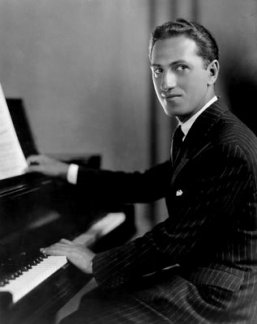

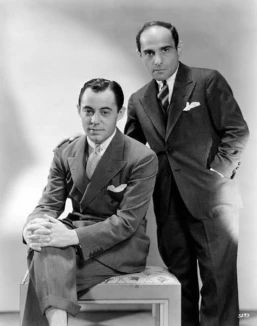

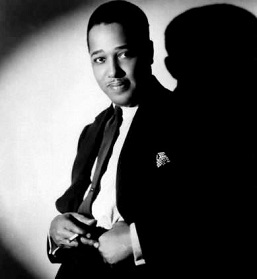


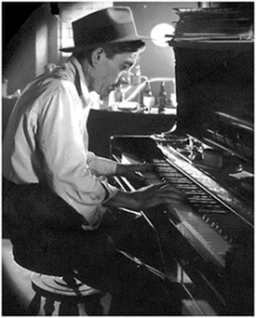
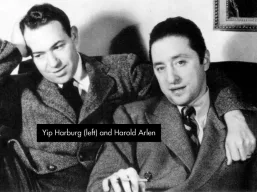
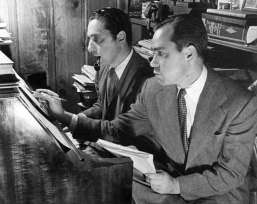



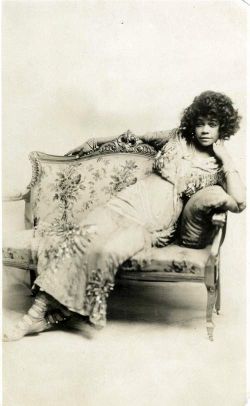





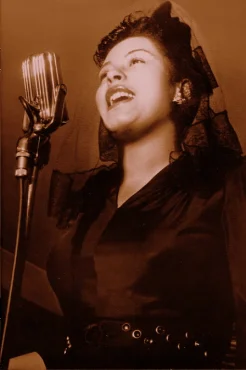




May 16, 2010 @ 11:06:15
I’m researching Rae Samuels. Any info you have to share would be wonderful. This site is a great source.
LikeLiked by 1 person
May 17, 2010 @ 01:22:17
Note: This following message was heavily re-edited on 9 September 2012. I hadn’t noticed that the pasted in revision of the original comment contained dozens of errors, mostly the result of improper conversion from visual to html code. It revised again on 14 October 2012, fixing other errors.
_______________________________________
Hi,
Rae Samuels? You mean this Rae Samuels?
I’m not familiar with the name or the face. But I will see what I can find.
I think this is the Rae Samuels you’re researching. She reportedly appeared in the Ziegfeld Follies of 1912 (see below). However, the only notice for a Rae Samuels I found at Internet Broadway Database (IBDb) is for the part of a showgirl in a 1968 Broadway production, Golden Rainbow.
1. I found a notice for Rae Samuels in the 1912 Ziegfeld production at a site called Stage Whispers where she is described as follows:
Rae Samuels, a peppy performer known as The Blue Streak of Ragtime, who packed a mixture of dialect songs, novelty numbers and comical anecdotes into a fast-paced act that kept her audience in stitches.
This seems to indicate that she did a very entertaining and versatile solo act within the production. Other actors involved in the the Follies of 1912 were (again from Stage Whispers) Bert Williams, Leon Errol and Harry Watson, and another newcomer: Singer/actress Elizabeth Brice. Rae Samuels was the first newcomer mentioned. Note, if you use the above link to the quoted page at Stage Whispers, that the image labeled “1912 Finale: Society Circus Parade” is actually from the film Ziegfeld Follies (1945). Lucille Ball is in the center with the enormous feathered headpiece.
2. Rae Samuels is mentioned in the following book: Vaudeville From the Honky-Tonks to the Palace by Joe Laurie, Jr., Holt (1953). The full text of the 561 page book is available at archive.org, here.
3. There may be more on her in this book, which is encyclopedic in size, over 1300 pages, and costs $375.00 at Amazon (new): Vaudeville, Old and New by Frank Cullen, Florence Hackman, Donald McNeilly (2006).
Google Books has some of this tome available for reading online. And there are five different pages which mention Rae Samuels, including a full page providing family history, a brief biographical sketch, and details of her career. There may actually be several pages of bio, but only one is provided in the eBook preview at this time. Here’s the link to the five cited pages:
Rae Samuels mentions in Vaudeville, Old and New
On page 325 of the book, Samuels is referred to as Al Jolson’s costar in The Honeymoon Express, a 1913 Broadway musical. However, IBDb does not list her, under the name Rae Samuels at least, among the opening night cast.
4. Rae Samuels is mentioned in a page giving the history of the Keith Albee Theater in Huntington, West Virginia. She performed on the opening night of the theater in 1928:
The opening day performance on May 8, 1928 featured performer Rae Samuels, nicknamed the “Blue Streak of Vaudeville” for her versatile acting ability.
At the time it was built the Keith-Albee Theatre was the second biggest theater in the United States, after the Roxy Theater in New York City. Seating approximately 3,000 patrons, it exemplified the opulence and grandeur of the 1920’s with a Mexican Baroque design style.
5. Rae Samuels appeared in the 1933 Universal film The Big Benefit with Bill ’Bojangles’ Robinson, Ann Seymour, and the comedy team of Ray Mayer & Edith Evans, who were known as “The Cowboy and The Girl.” IMDb’s page on The Big Benefit indicates that Rae Samuels got “top billing” in the film over Bill Robinson, who is listed second. She played herself. However, IMDb gives no soundtrack info.
There are many more results. Basically, I began with a very simple Google search that you could duplicate using the keywords “Ray Samuels” or “Ray Samuels vaudeville.”
Hope this was of assistance to you. Let me know if I can help further.
Cheers, Jim
LikeLike
May 06, 2012 @ 15:23:31
I just want to say that you have done a most magnificent job of research and presentation. Marvelous, simply marvelous. Thank you, thank you.
LikeLiked by 1 person
May 06, 2012 @ 18:02:20
Mike, Thank you, for the kind note. It always helps to know your labors are appreciated. — Jim (doc)
LikeLike
Mar 25, 2014 @ 09:09:50
Thanks so much. Rae Samuels was my first cousin (once removed). Her mother and my grandmother were sisters from Wales. Rae and her aunt Sarah remained good friends. They visited whenever Rae was near Burlington, IA. She was certainly a star of her era. I am very interested in any “news” about her. S. Hulme
LikeLiked by 1 person
Mar 25, 2014 @ 14:31:58
Steven,
You’re very welcome. Allow me to mention that some of the details of the Rae Samuels biography and the family history presented in the aforementioned book Vaudeville, Old and New (pp. 989-991), were provided by you and another member of the family, Patrick Forkins, in 2004.
You are directly quoted twice on page 990, but it’s difficult to tell how much of the biography is your own words since the first quote of the two, which appears in the first paragraph of page 990, is never closed.
LikeLike